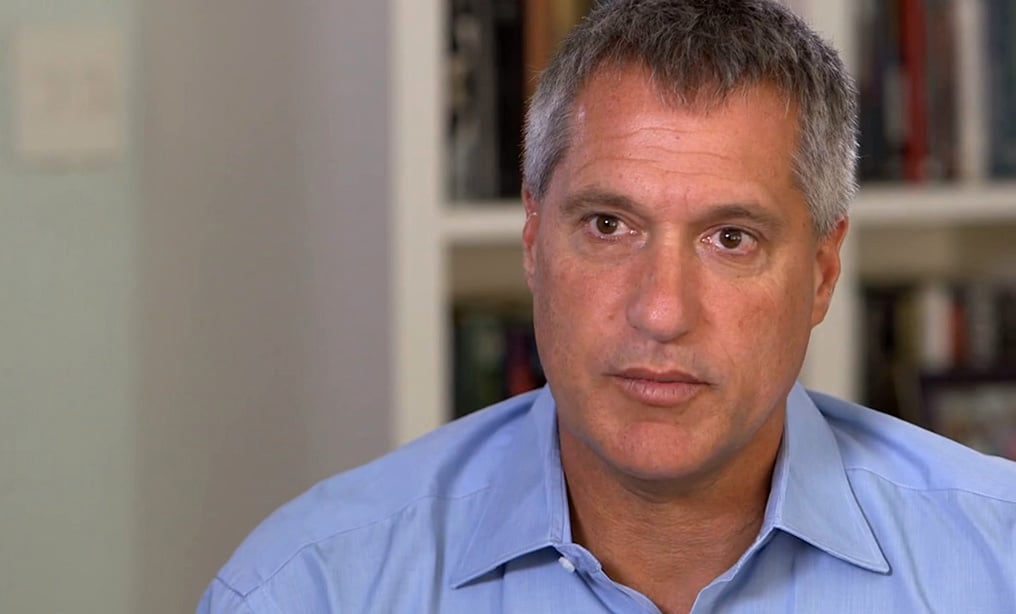Steven Donziger Loses Request for Probe Into Seward & Kissel's Alleged Chevron Ties
Seward & Kissel partner Rita Glavin on Monday denied the firm had any existing client relationships that would impact the firm's ability to impartially prosecute the case.
January 06, 2020 at 12:55 PM
5 minute read
 Steven Donziger. Source: Steven Donziger/Vimeo
Steven Donziger. Source: Steven Donziger/Vimeo
A federal judge rejected Steven Donziger's request for a probe into alleged ties between oil giant Chevron and the team of Seward & Kissel attorneys appointed to prosecute his criminal contempt case as "way too attenuated."
An attorney for Donziger asked U.S. District Judge Loretta A. Preska of the Southern District of New York last week to approve a judicial inquiry after research led him to believe that an unnamed Seward & Kissel partner had served on Chevron's board, and that the firm served clients who do business with the company or its related entities. Donziger spent years fighting Chevron over environmental contamination in Ecuador.
Rita Glavin, a Seward & Kissel partner assigned to the prosecution team, called those claims "irresponsible and disturbing" Monday, saying they were part of an ongoing attempt by Donziger and his lawyer, Andrew Frisch, to attack the legitimacy of the criminal proceedings against him.
"It is a pattern of Mr. Donziger attacking lawyers, attacking judges and attacking parties at every step of this case," Glavin said.
She denied that Seward & Kissel had any existing client relationships that would impact the firm's ability to impartially prosecute the case.
Last August, U.S. District Judge Lewis Kaplan of the Southern District of New York appointed Glavin and fellow Seward & Kissel attorneys Brian Maloney and Sareen Armani to prosecute Donziger for criminal contempt for allegedly flouting a discovery order in a civil lawsuit by Chevron, which wiped out a $9 billion judgment against the company in Ecuador.
The U.S. Attorney's Office declined to take up the case, citing a lack of resources, leading to the unusual appointment of private prosecutors under the Federal Rules of Criminal Procedure.
With their appointment, Glavin and her team have the power to issue subpoenas and to seek and execute search warrants.
Glavin said Monday that she discussed allegations of conflicts with Frisch during a Dec. 19 call, but the sides were unable to reach a resolution.
In a Dec. 30 letter, Frisch said that, "based on publicly-available information," it appeared Glavin's law partner had served on the Chevron board as recently as 2018. Among other supposed conflicts, he said, at least one Seward & Kissel client had received "significant funding" from Chevron, and two more had been paid by Oaktree Capital Management, an investment fund whose vice chairman also sits on the Chevron board.
Frisch also asked for any communications Glavin and her colleagues had with Kaplan's chambers, saying it was "important to clarify whether and the extent to which Judge Kaplan has played or is playing a continuing role in this prosecution."
In a response late Friday, Glavin said it was simply not true that any Seward partner had been on Chevron's board. Seward added the firm did the proper conflict checks before taking on the prosecution.
On Monday, Glavin denied any coordination with Kaplan and said it was "irresponsible" for Frisch to make the allegations.
"The prosecution does not seek Judge Kaplan's input with respect to our prosecution and strategy, and Judge Kaplan does not weigh in with respect to our prosecution and strategy," she said.
Frisch, for his part, said he stood by "what I said, word for word." Though he acknowledged it was inaccurate that a Seward & Kissel attorney had served on the Chevron board, Frisch asked for additional disclosures and an expedited hearing.
"I don't know all the facts," he said. "I know what I found publicly available."
Preska, however, said loose allegations of conflicts were not enough to support Frisch's request, and that she was "satisfied with the prosecution's representations" regarding its dealings with Kaplan.
Monday's ruling comes as Donziger is facing legal threats on three fronts. The suspended attorney, who has been subject to home confinement for months, won a $9 billion judgment against Chevron in Ecuador's courts in 2011, but Chevron successfully argued in U.S. courts that the judgment was obtained through bribery. The oil giant, in turn, won an $800,000 judgment against Donziger and has tried to enforce it and to have him disbarred.
While the criminal contempt case advances, Donziger has sought to partly pause the civil case brought by Chevron, which is seeking to enforce its judgment. He appealed a Dec. 9 decision by Kaplan rejecting his motion in that case. He has also asked the U.S. Court of Appeals for the Second Circuit to reverse a decision by Preska to keep him subject to home confinement.
In the meantime, potential disbarment proceedings have been ongoing in New York state courts. Referee John Horan heard several days of testimony in October and post-trial briefs were filed in December.
Read More:
Donziger Says Seward & Kissel May Have Chevron-Related Conflicts
Donziger Faces Criminal Contempt Prosecution Team at Seward & Kissel
This content has been archived. It is available through our partners, LexisNexis® and Bloomberg Law.
To view this content, please continue to their sites.
Not a Lexis Subscriber?
Subscribe Now
Not a Bloomberg Law Subscriber?
Subscribe Now
NOT FOR REPRINT
© 2025 ALM Global, LLC, All Rights Reserved. Request academic re-use from www.copyright.com. All other uses, submit a request to [email protected]. For more information visit Asset & Logo Licensing.
You Might Like
View All

Family Law Practitioners Weigh In on Court System's New Joint Divorce Program

Former NY City Hall Official Tied to Adams Corruption Probe to Plead Guilty

New Charges Expected in Sex Trafficking Case Against Broker Brothers
Trending Stories
- 1CFPB Labor Union Files Twin Lawsuits Seeking to Prevent Agency's Closure
- 2Crypto Crime Down, Hacks Up: Lawyers Warned of 2025 Security Shake-Up
- 3Atlanta Calling: National Law Firms Flock to a ‘Hotbed for Talented Lawyers’
- 4Privacy Suit Targets Education Department Over Disclosure of Student Financial Data to DOGE
- 5Colwell Law Group Founder Has Died in Skiing Accident
Who Got The Work
J. Brugh Lower of Gibbons has entered an appearance for industrial equipment supplier Devco Corporation in a pending trademark infringement lawsuit. The suit, accusing the defendant of selling knock-off Graco products, was filed Dec. 18 in New Jersey District Court by Rivkin Radler on behalf of Graco Inc. and Graco Minnesota. The case, assigned to U.S. District Judge Zahid N. Quraishi, is 3:24-cv-11294, Graco Inc. et al v. Devco Corporation.
Who Got The Work
Rebecca Maller-Stein and Kent A. Yalowitz of Arnold & Porter Kaye Scholer have entered their appearances for Hanaco Venture Capital and its executives, Lior Prosor and David Frankel, in a pending securities lawsuit. The action, filed on Dec. 24 in New York Southern District Court by Zell, Aron & Co. on behalf of Goldeneye Advisors, accuses the defendants of negligently and fraudulently managing the plaintiff's $1 million investment. The case, assigned to U.S. District Judge Vernon S. Broderick, is 1:24-cv-09918, Goldeneye Advisors, LLC v. Hanaco Venture Capital, Ltd. et al.
Who Got The Work
Attorneys from A&O Shearman has stepped in as defense counsel for Toronto-Dominion Bank and other defendants in a pending securities class action. The suit, filed Dec. 11 in New York Southern District Court by Bleichmar Fonti & Auld, accuses the defendants of concealing the bank's 'pervasive' deficiencies in regards to its compliance with the Bank Secrecy Act and the quality of its anti-money laundering controls. The case, assigned to U.S. District Judge Arun Subramanian, is 1:24-cv-09445, Gonzalez v. The Toronto-Dominion Bank et al.
Who Got The Work
Crown Castle International, a Pennsylvania company providing shared communications infrastructure, has turned to Luke D. Wolf of Gordon Rees Scully Mansukhani to fend off a pending breach-of-contract lawsuit. The court action, filed Nov. 25 in Michigan Eastern District Court by Hooper Hathaway PC on behalf of The Town Residences LLC, accuses Crown Castle of failing to transfer approximately $30,000 in utility payments from T-Mobile in breach of a roof-top lease and assignment agreement. The case, assigned to U.S. District Judge Susan K. Declercq, is 2:24-cv-13131, The Town Residences LLC v. T-Mobile US, Inc. et al.
Who Got The Work
Wilfred P. Coronato and Daniel M. Schwartz of McCarter & English have stepped in as defense counsel to Electrolux Home Products Inc. in a pending product liability lawsuit. The court action, filed Nov. 26 in New York Eastern District Court by Poulos Lopiccolo PC and Nagel Rice LLP on behalf of David Stern, alleges that the defendant's refrigerators’ drawers and shelving repeatedly break and fall apart within months after purchase. The case, assigned to U.S. District Judge Joan M. Azrack, is 2:24-cv-08204, Stern v. Electrolux Home Products, Inc.
Featured Firms
Law Offices of Gary Martin Hays & Associates, P.C.
(470) 294-1674
Law Offices of Mark E. Salomone
(857) 444-6468
Smith & Hassler
(713) 739-1250






